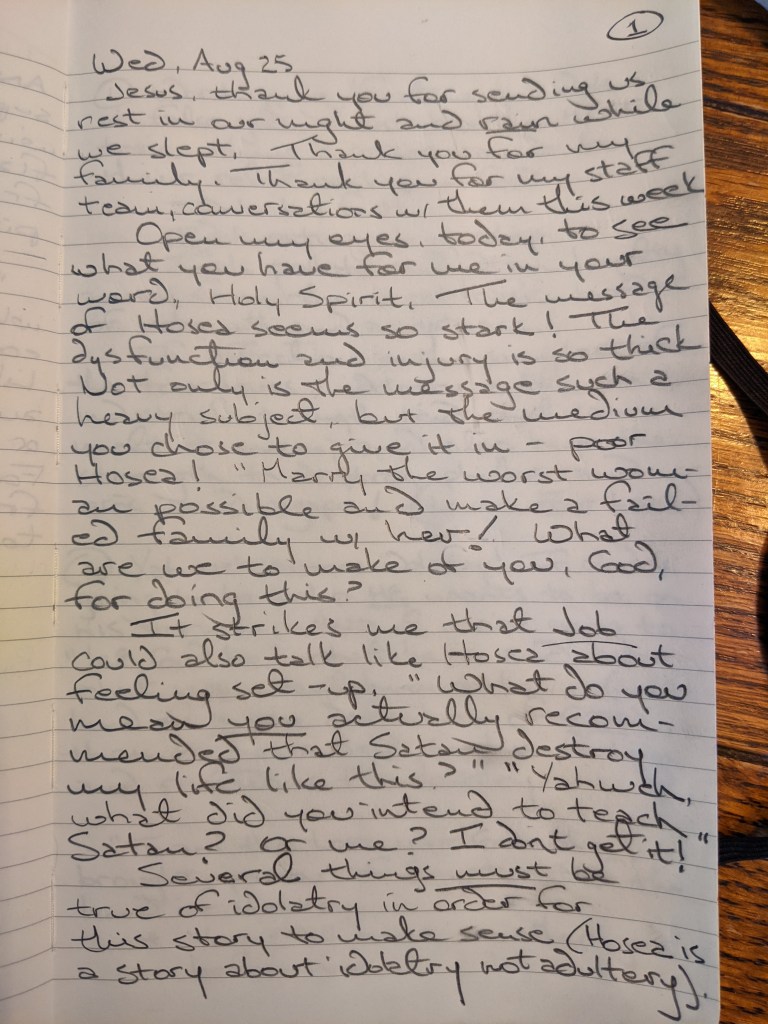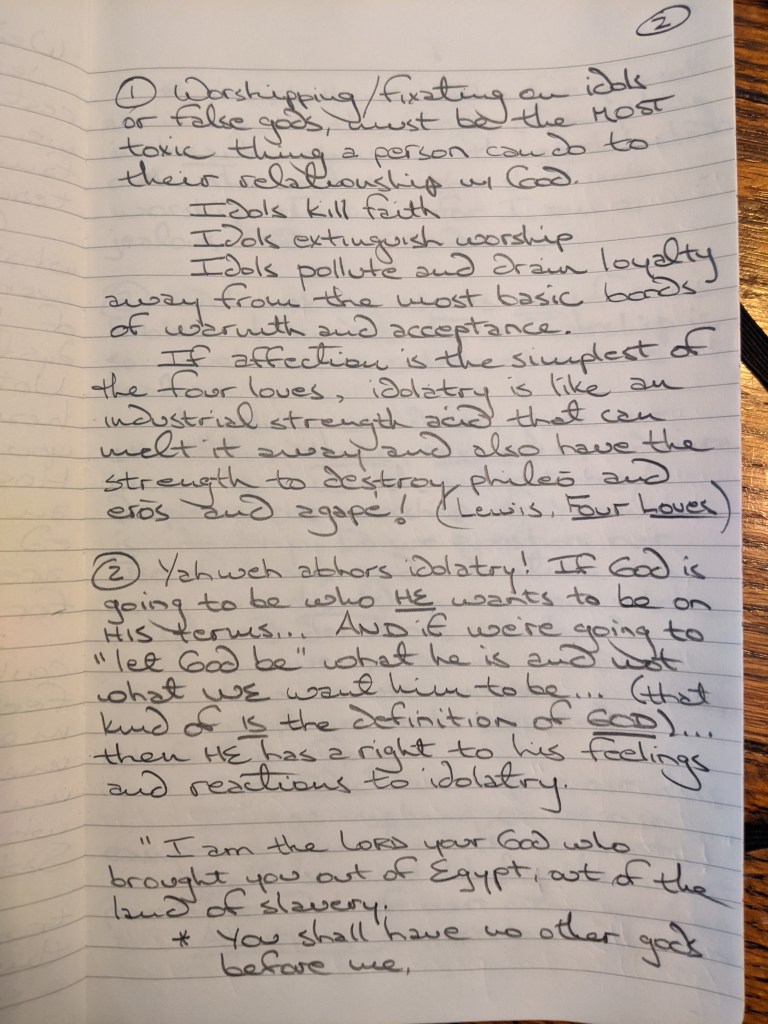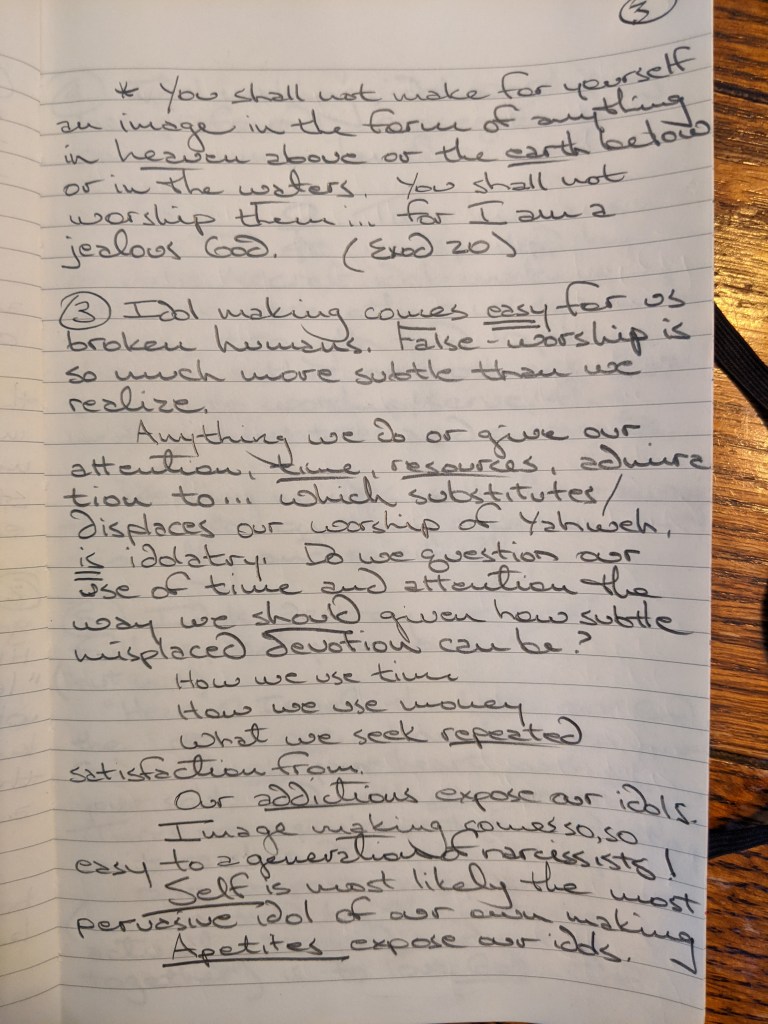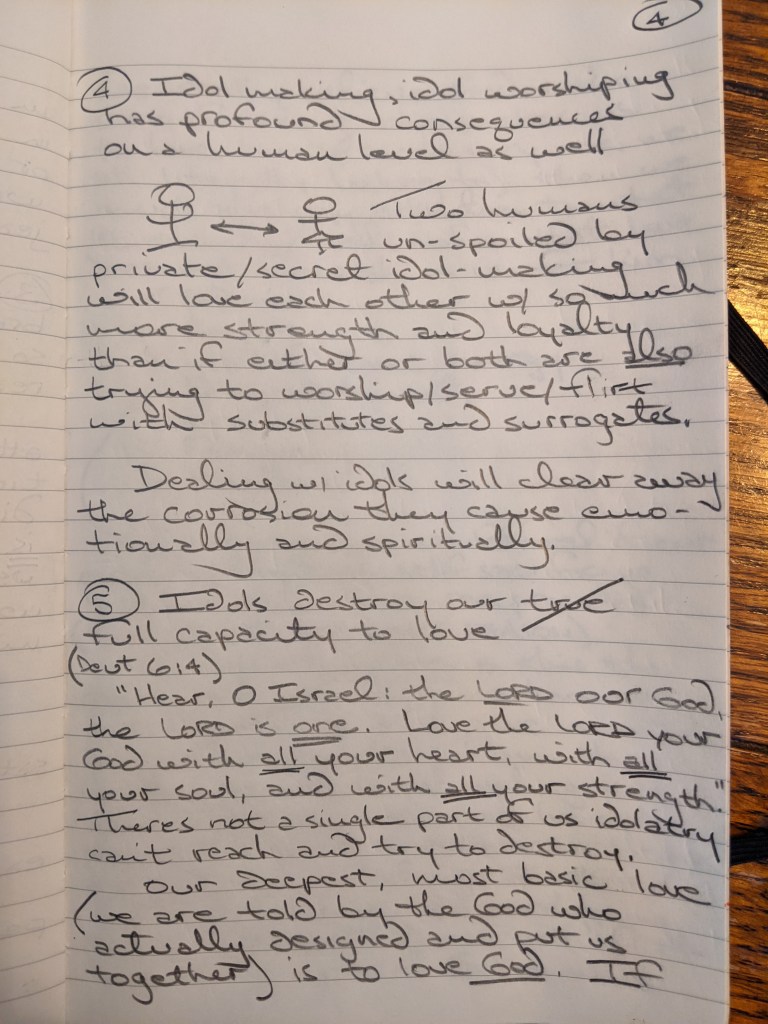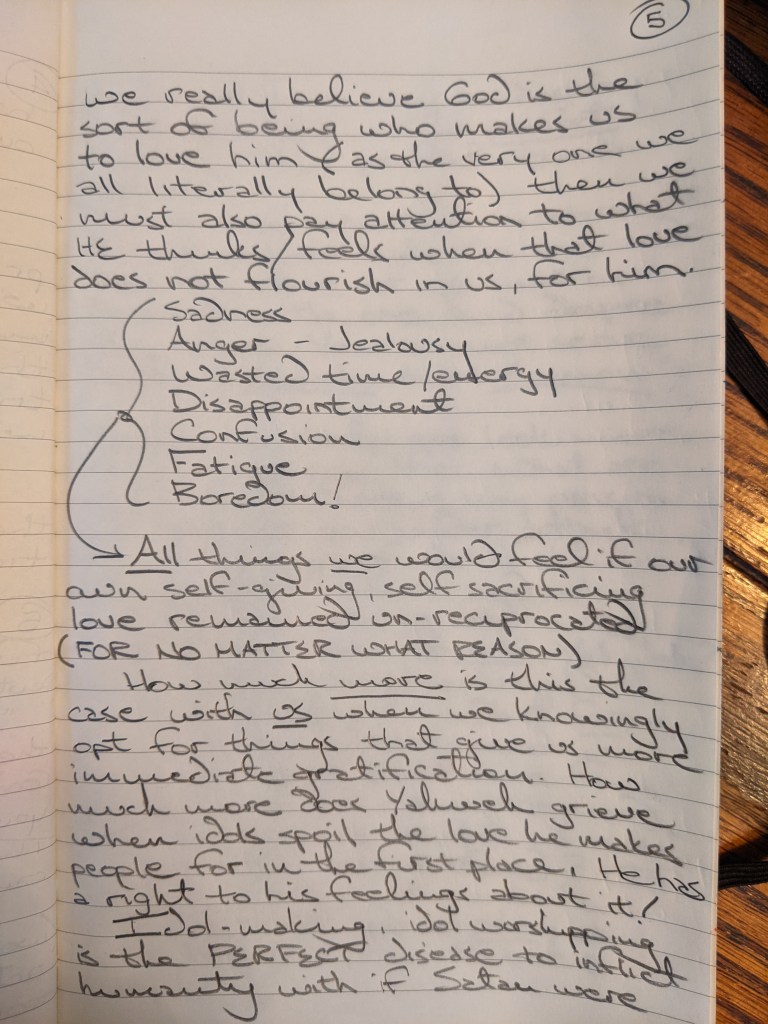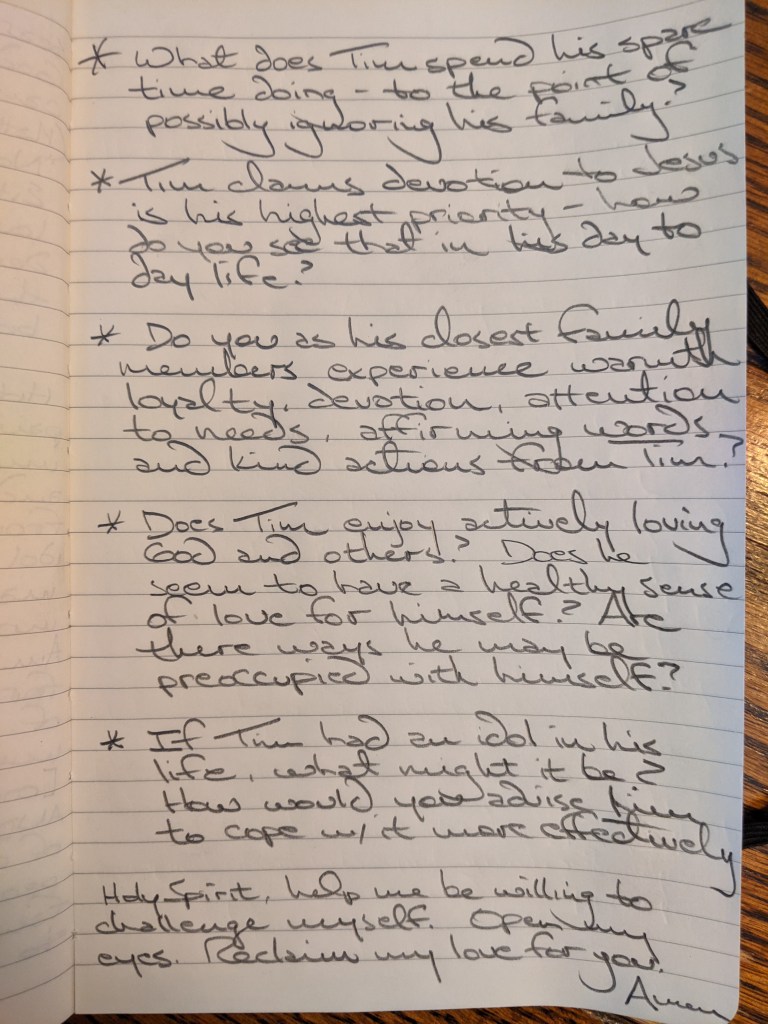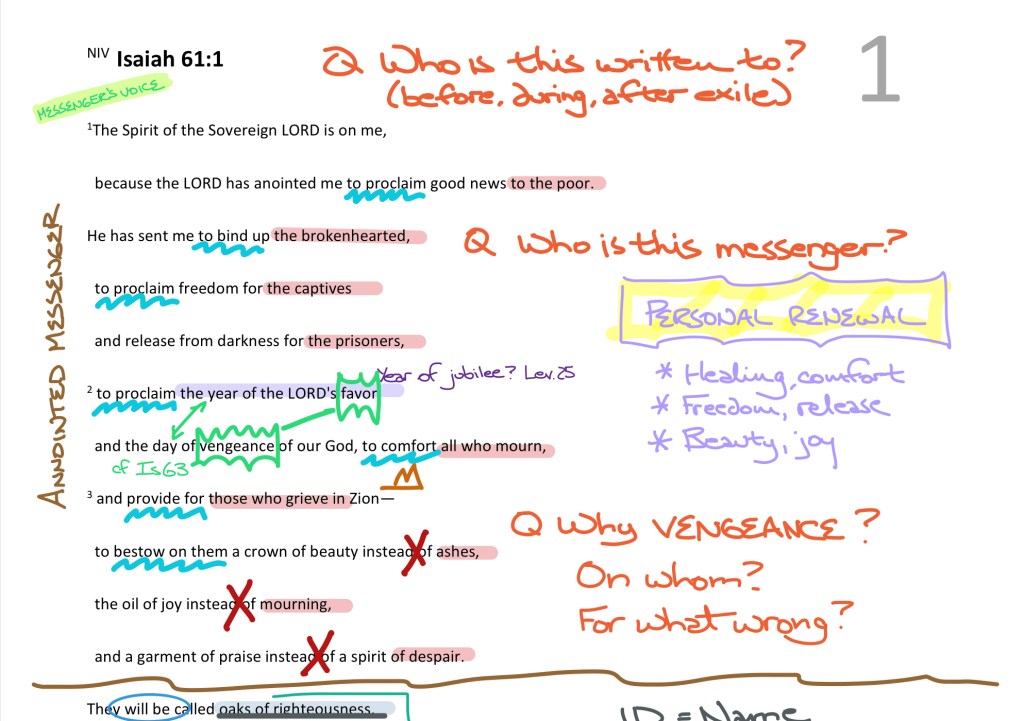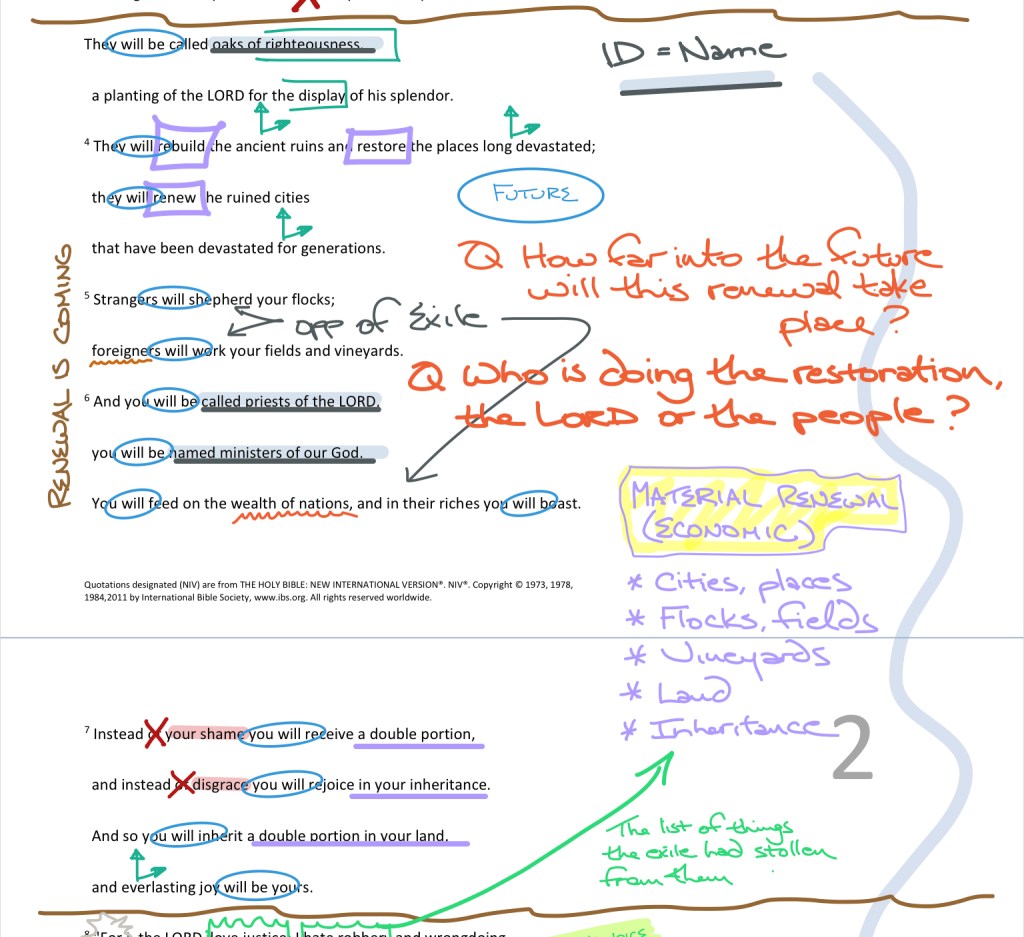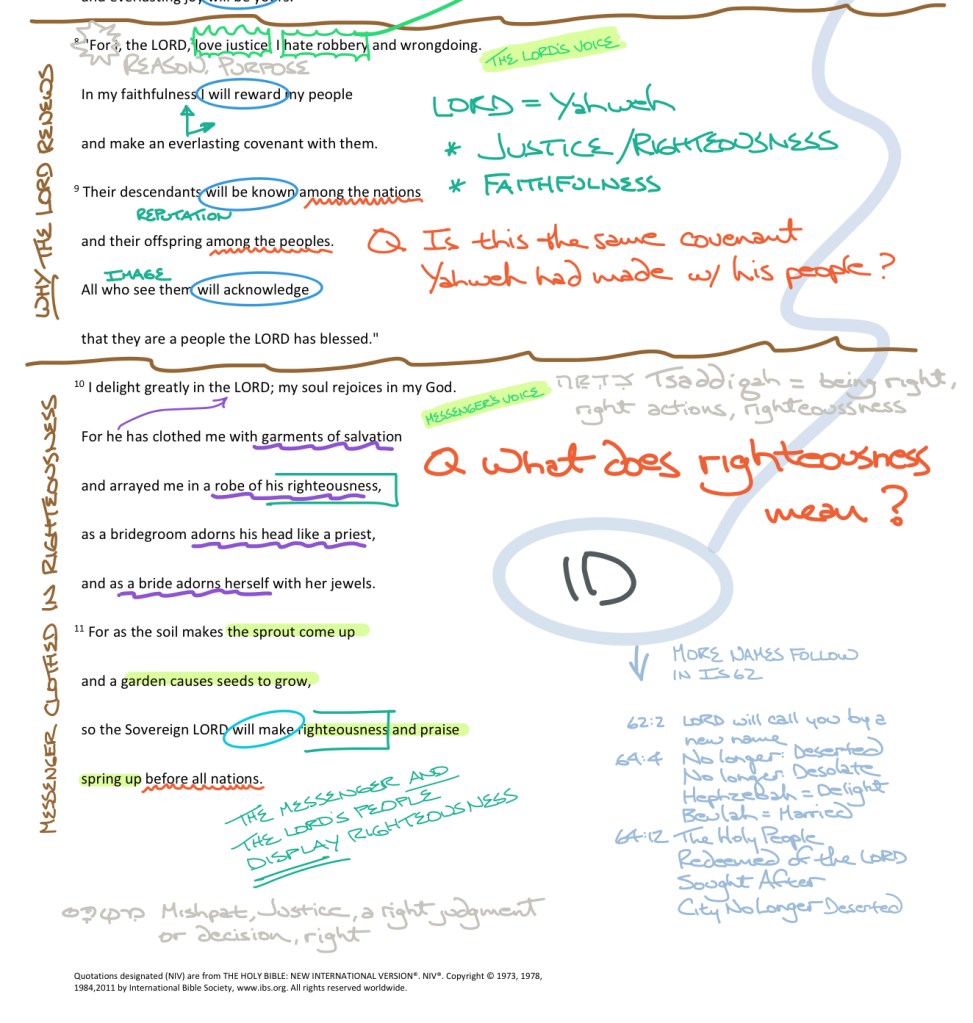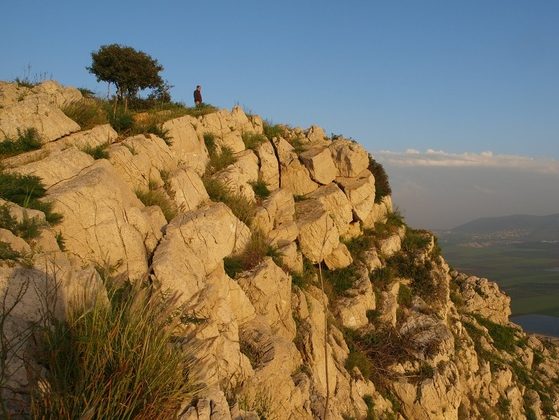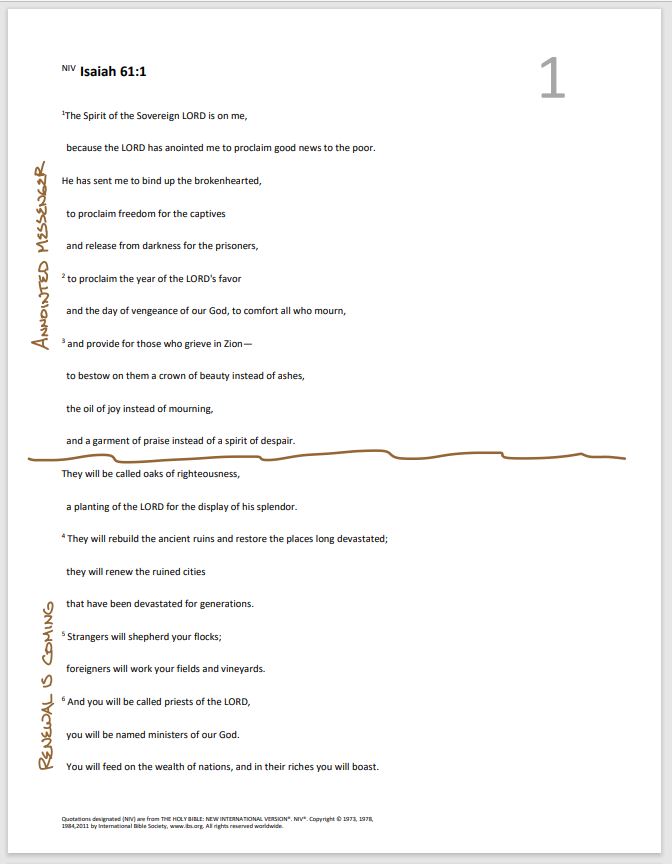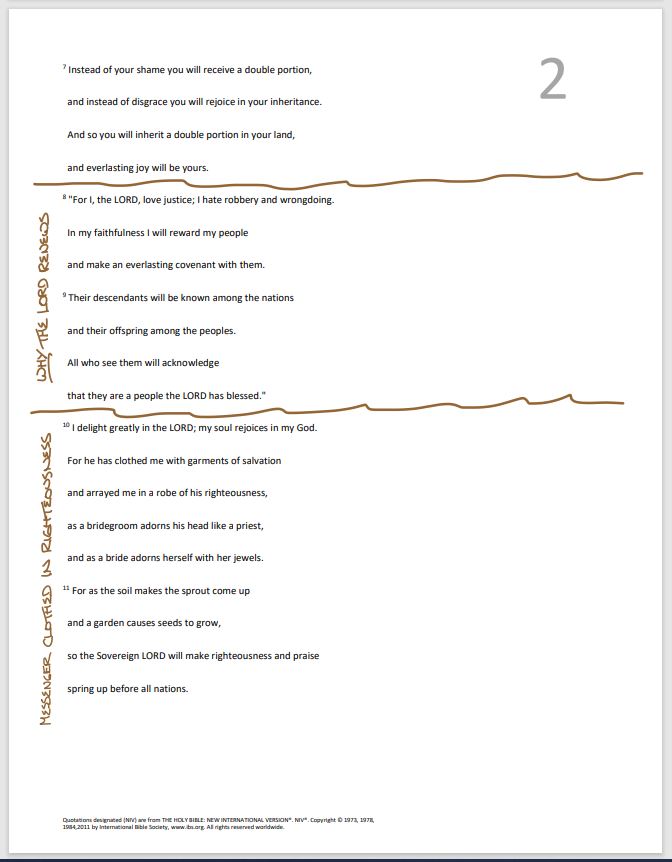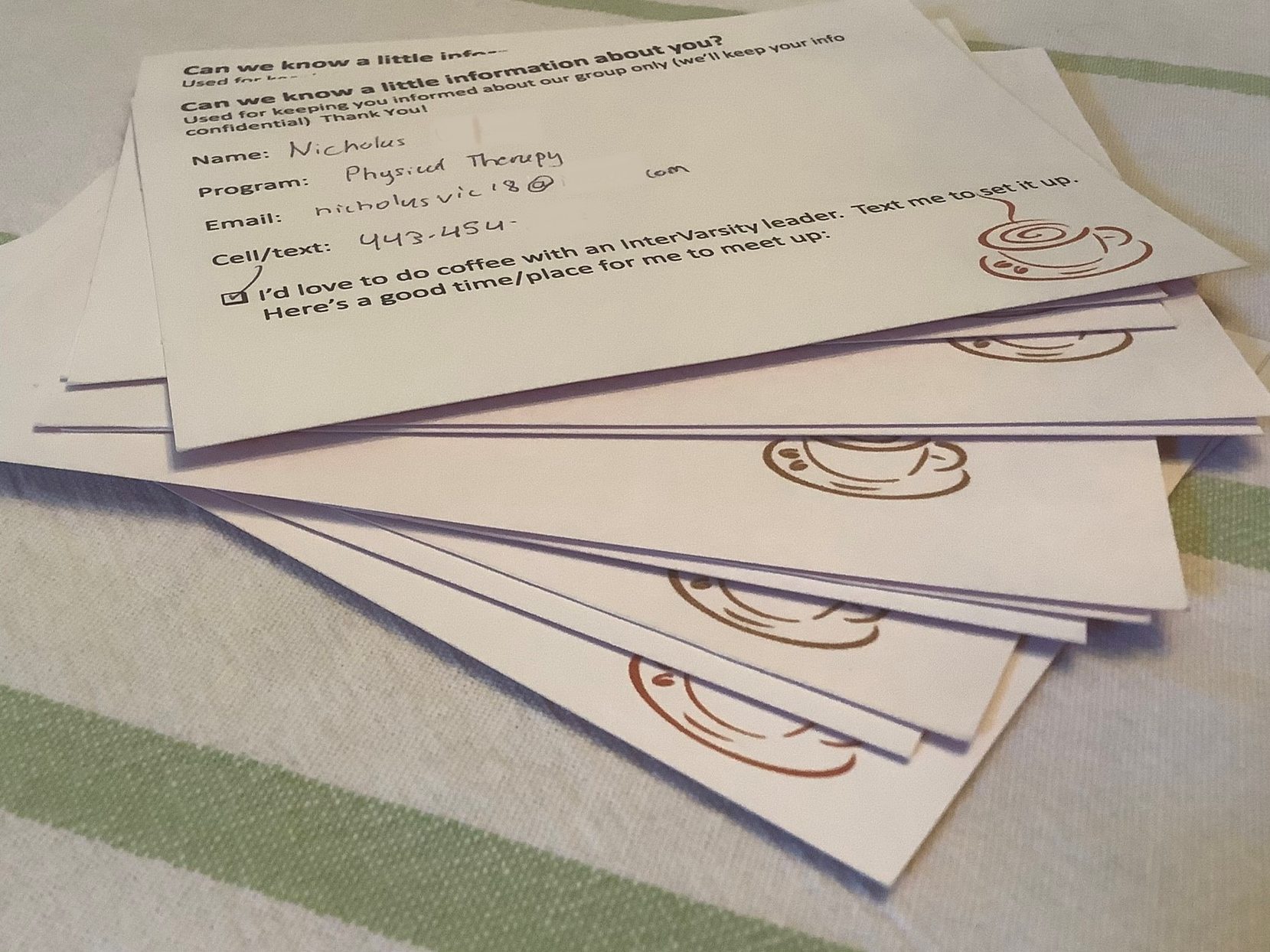
The alarm needs to fit the danger it forewarns. I was driving a newer car the other day. A rental. I didn’t realize it had a safety feature that beeps, flashes a light, vibrates and partially takes over the steering if you are drifting out of your lane! I was clueless the first time it engaged (just about lost my coffee). The warning fit the threat. If my driving at that moment continued unchecked, I could have been rammed by a vehicle rapidly closing in on me from behind.
Imagine if the designers of Timzrental would have programmed their safety feature to softly suggest “you might want to check your mirrors” (in a soothing British accent). Or worse yet, sent me a text message later in the day recommending I “mind my mirrors better next time”. It would spare my ego in the moment, but fail brilliantly to keep me out of danger.
In RE-moment number three, Yahweh steps in with what he considered an appropriate alarm. A rude siren through an obedient prophet named Hosea. The warning fit the threat. Before we open Hosea a quick word about the threat. And a quick word about the warning.
The worst sin.
I know you’re not supposed to say what sins are worse than others. Maybe that would imply some people are worse sinners than others. But let’s not make this about the sinner. Let’s talk about the sin. If sin were cancer what could we observe about it? First we’d have to admit not all cancers are equally fatal. What’s the worst cancer you can think of? Wouldn’t it be the one that does the most damage in the most stealthy manner? Before you knew you were sick, you’re chances of beating the dammed stuff would be just about zero?
The best clue about the worst sin rests with God’s greatest pleasure. Take whatever it is that is God’s greatest favor and spoil it for him. Block God from getting what he most wants. That’s the worst thing. Here it is:
“Hear O Israel the LORD our God, the LORD is one. Love the LORD your God with all your heart, with all your soul, and with all your strength.” Deut 6:4
“I am the LORD your God who brought you out of Egypt, out of the land of slavery. You shall have no other gods before me. You shall not make for yourself an image in the form of anything in heaven above or the earth beneath, or in the waters below. You shall not bow down to them or worship them; for I the LORD your God, am a jealous God…” Deut 20:2-5
This is the core. Destroy this and you destroy Yahweh worshippers! In the Old Testament. In the New Testament. In the Church. You and me. The fastest way to damage your relationship with God is reject his love in favor of your own objects of devotion. Rejecting and replacing God thru idolatry – the most dangerous threat!
The loudest alarm.
The medium for a warning with such dire consequence can’t be something easy to ignore. If it were a sound it would be sharp, ear-piercing, obnoxious. Something visual? It would have to stab your retinae. If it were verbal let’s just say it wouldn’t be nice to hear.
God shouted his lungs out over Israel’s idolatry. But here the medium he picked wasn’t primarily verbal. He reached into his communicator’s toolbox and pulled out Hosea. No kidding. He used Hosea. “Go, marry a sexually unfaithful woman, Hosea. And introduce her to the tribes of the northern kingdom. After you do that, let me do the talking – they’ll get the message loud and clear!”
Book-ends
By now you know the drill. Click here to download a fresh copy of the manuscript:
My scrawlings below will ruin it for you purists. We’re going to attempt to get a feel for the entire book of Hosea by looking at the beginning and the ending. At the top of the manuscript you’ll see the three selections we’ve chosen. As you scroll down below, you’ll find a series of inductive questions. I wrote about why I picked this moment to consider in the previous blog.
Questions for discussion:
1- Do you agree with the statement: “The most spiritually dangerous sin is and has always been idolatry.”? What idols do you see when you look at our world today? What forms of idolatry seem to have a draw even for Christians today?
2- The prophets were supposed to give God’s word to his people. If you were Hosea, how would it feel to you being told to marry a woman like Gomer and to raise a family with her? Why do you think Hosea is willing to do this (compare him with Jonah who actually fled in the opposite direction he was commissioned to go)?
3- Hosea is ministering to the Northern Tribes of Israel in the closing years before Assyria destroys their capital city of Samaria (722 BC). The exile was an act of severe judgement by Yahweh for their unfaithfulness. Skimming chapters 4 and 5 will give you vivid picture of their rejection of God’s word and their preoccupation with Baal worship. Why has their idolatry come to such an extreme point of failure?
4- What do the names of the children reveal about what is happening between Yahweh and Israel?
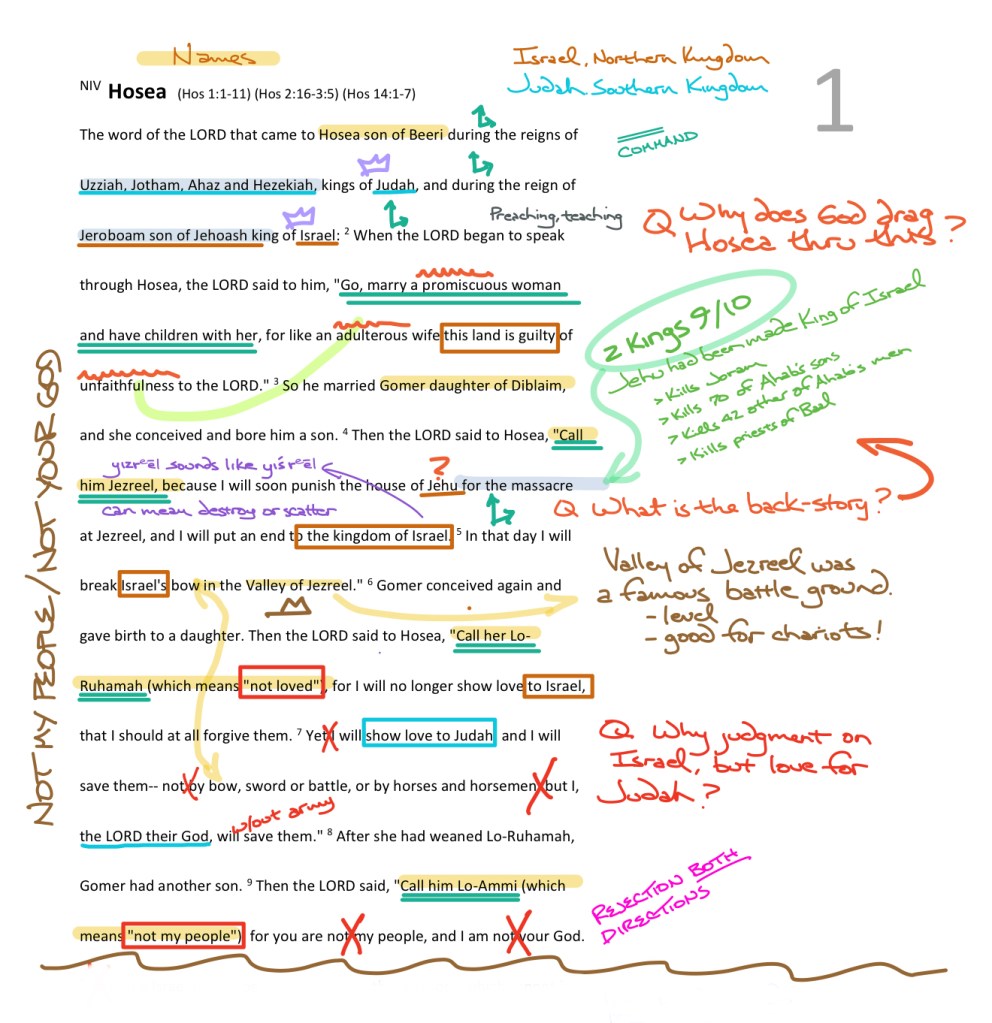
Reading books like Hosea and Isaiah, one notices right away that messages of pending judgment and punishment are situated right next to messages of hope and promise! Emotionally it can be quite a challenge to put yourself in the story. Hosea chapter 2 is such a lift. “In that day” (actually the day of Jezreel or day of judgment) Yahweh says his people WILL be restored (not merely punished).
5- List everything Yahweh will eventually do for his people through (and in addition to) this coming act of judgment on them.
6- The LORD’s acts of healing and restoring are all cast in marital and familial terminology (my children, my husband, covenant, betrothal, etc). How do terms like this describe what it means for Yahweh to reclaim his chosen people?
7- Baal worship was a system of trying to please a pagan deity with sexualized acts of worship. A happy Baal meant that their crops and flocks and families would all be fruitful and multiply? How does this help us see why the LORD can tolerate no other gods before himself?
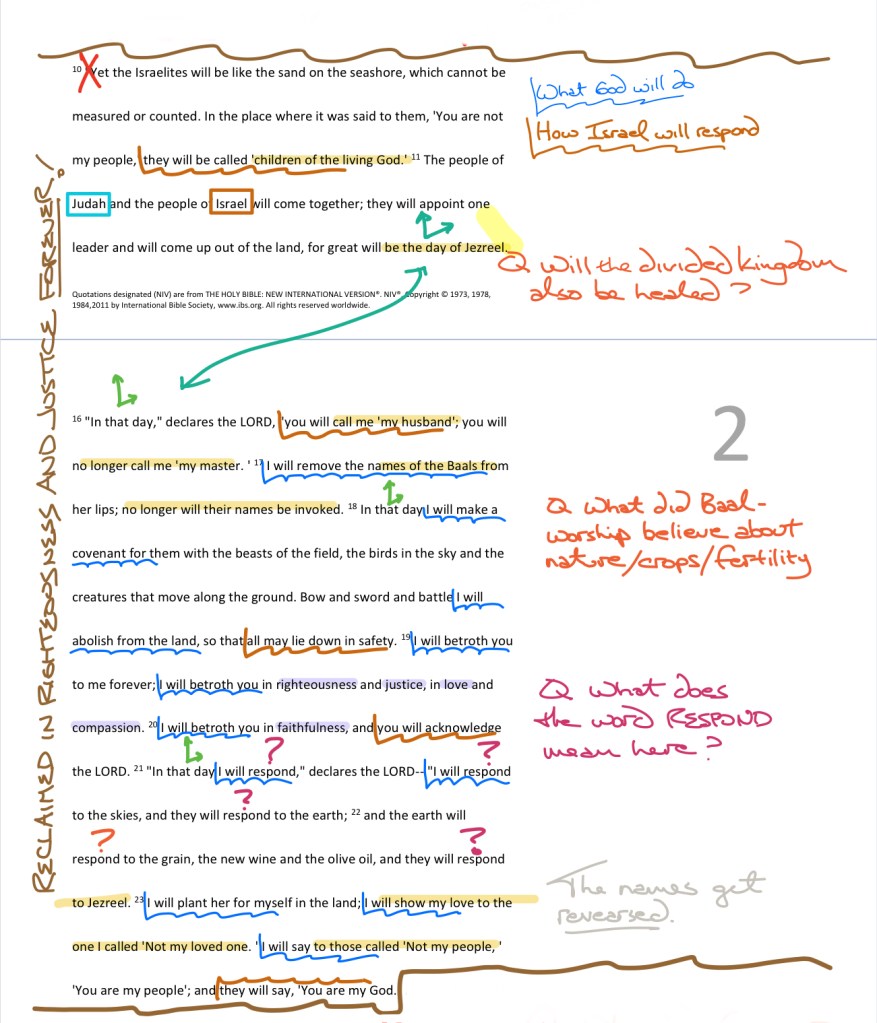
The Hosea and Gomer story comes back center-stage. It’s the classic relapse chapter. Remember that the story of Hosea’s family is telling the story of Israel and Yahweh.
8- Gomer has been rescued from a life of promiscuity (most likely prostitution). Why after being given a stable family identity (husband and three children) would she return to a life of sexual unfaithfulness – likely involving abuse and addiction?
9- Abstinence, deprivation, a season of radical estrangement – how is dealing with Gomer’s unfaithfulness similar to what Yahweh will impose on Israel via the exile? What gives Yahweh the right to require Israel to sever ties with all other gods?
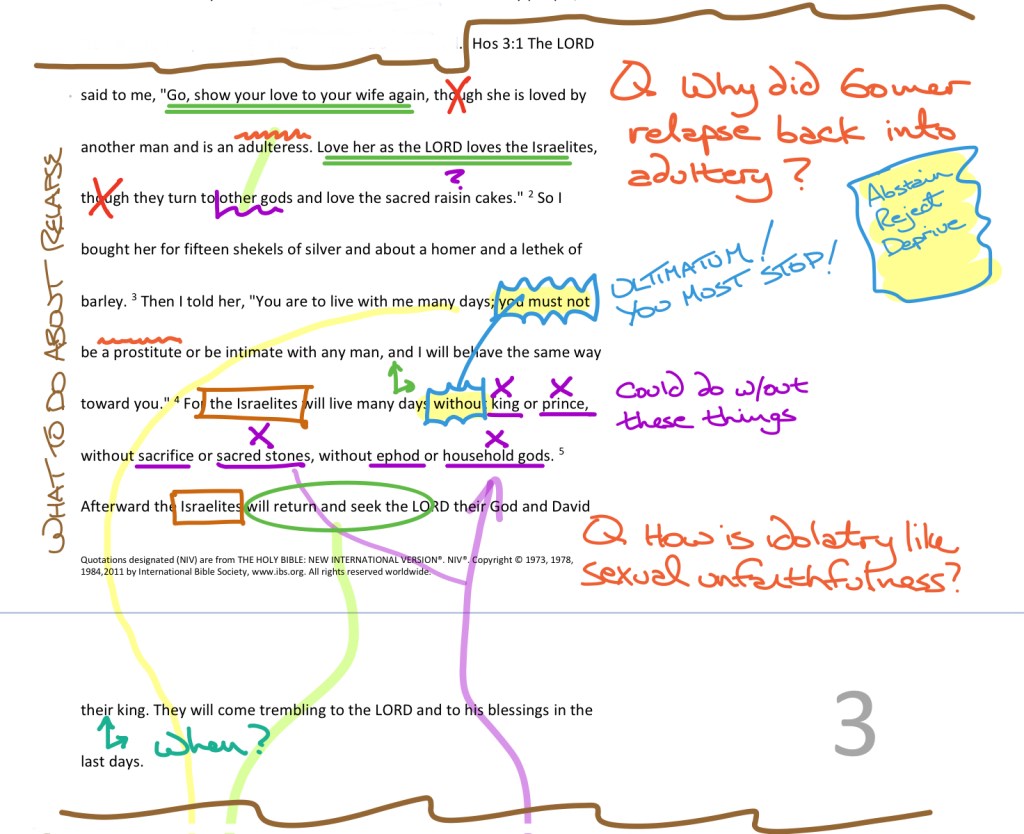
The pathway of healing for Israel means not only will the LORD reclaim his people from their idolatry, but they also will reclaim Yahweh as their God. The identity and ownership once again will flow both directions. God will love and care for his people. God’s people will worship, serve and bless him.
10- Israel vows to never again give the devotion Yahweh rightfully deserves to something of their own making. Does idolatry still work the same way today? Explain.
11-Anger is a clue to idols. Not only does idolatry anger a God who loves us and longs for our good, anger is what people experience when our idols are exposed. Consider this quote from Tim Keller’s book Counterfeit Gods:
“When anything in life is an absolute requirement for your happiness and self-worth, it is essentially an ‘idol,’ something you are actually worshiping. When such a thing is threatened, your anger is absolute. Your anger is actually the way the idol keeps you in its service, in its chains. Therefore if you find that, despite all the efforts to forgive, your anger and bitterness cannot subside, you may need to look deeper and ask, ‘What am I defending? What is so important that I cannot live without?’ It may be that, until some inordinate desire is identified and confronted, you will not be able to master your anger.”
Is there an idol or a false god in your vicinity that leaves its fingerprints on you through your anger or other strong emotions? Explain.
12- Since idols can be almost anything, what is the best way to discern which things in our life, though in and of themselves might be good, have become an idol we must part with? In your experience, what is the best way to put an idol to rest?
13 – What forms of God’s goodness and care do you most long to enjoy without interruption? Would you say that your life is firmly in God’s grip of safety and care, or are you experiencing estrangement or waywardness? Why?
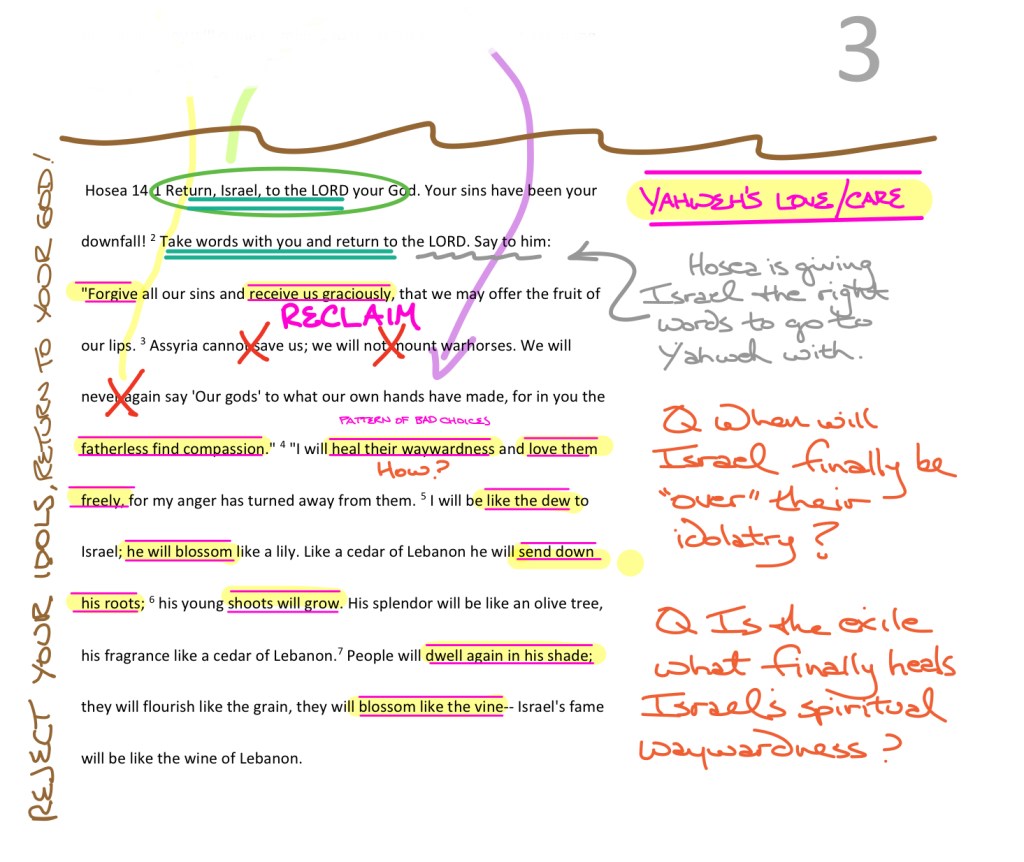
We’ll keep the series coming at you here! Hope you can join us.

